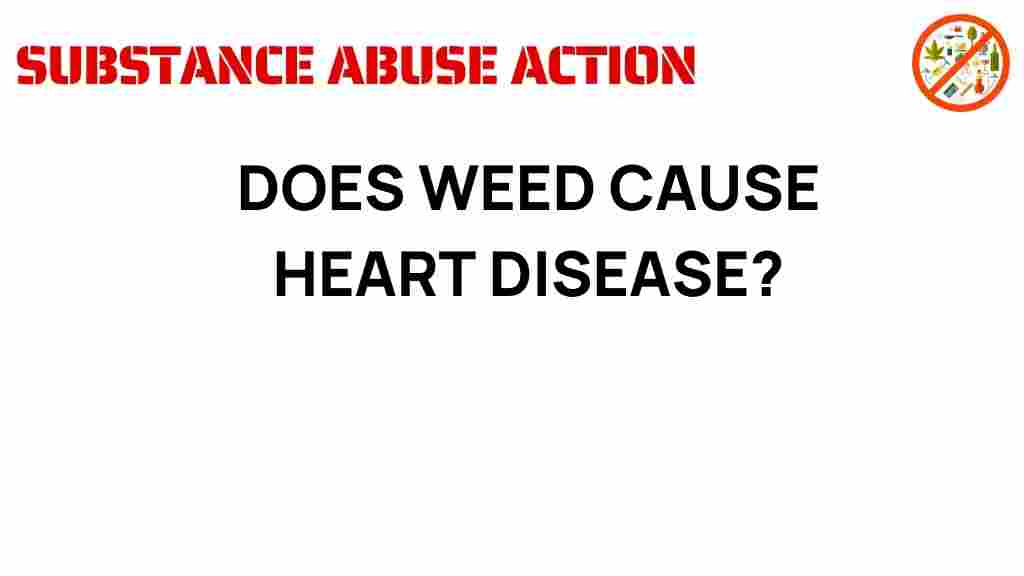Unraveling the Mystery: Does Weed Contribute to Heart Disease?
The conversation surrounding weed, also known as cannabis, and its potential health implications is ongoing and often contentious. With increasing legalization across many states and countries, more individuals are using cannabis for recreational and medicinal purposes. However, a significant health concern arises: does weed contribute to heart disease? This article explores the relationship between cannabis use and cardiovascular health, focusing on the health risks associated with smoking and other consumption methods.
The Link Between Cannabis and Heart Disease
Research into the effects of cannabis on cardiovascular health is still evolving. However, several studies have indicated potential connections between weed use and heart disease. The main factors to consider include:
- Heart Rate Increase: Cannabis consumption can lead to an increase in heart rate, which may pose risks for individuals with pre-existing heart conditions.
- Blood Pressure Fluctuations: Some studies suggest that cannabis might cause temporary increases in blood pressure, contributing to cardiovascular strain.
- Smoking Risks: The method of cannabis consumption plays a significant role in its effects. Smoking weed poses similar risks to smoking tobacco, including damage to blood vessels and lungs.
Understanding the Health Risks
When discussing health risks, it’s crucial to differentiate between various forms of cannabis use. While smoking is the most common method, cannabis can also be consumed through edibles, oils, and vaporizers. Each method has distinct implications for heart health:
1. Smoking Cannabis
Smoking is the traditional method of consuming cannabis and is associated with several cardiovascular concerns:
- Inhalation of Toxins: Similar to tobacco smoke, cannabis smoke contains harmful substances that can damage the lungs and cardiovascular system.
- Increased Carbon Monoxide Levels: Smoking weed can result in elevated levels of carbon monoxide, which can impair oxygen delivery to the heart.
2. Edibles and Oils
Cannabis edibles and oils may present fewer risks to heart health compared to smoking. However, they can still pose challenges:
- Delayed Effects: The effects of edibles can take longer to manifest, leading users to consume more than intended, which can result in adverse effects.
- High Sugar Content: Many edibles contain high levels of sugar, which can negatively impact cardiovascular health.
3. Vaping
Vaping cannabis has become a popular alternative to smoking. While it may reduce exposure to some harmful substances, it is not without risks:
- Unknown Long-term Effects: As vaping is relatively new, research on its long-term cardiovascular effects is still limited.
- Potential for Harmful Additives: Some vaping products contain additives that may be harmful to heart health.
Research Insights on Cannabis and Heart Disease
Numerous studies have investigated the relationship between cannabis use and heart disease, providing valuable insights:
- Increased Risk of Heart Events: Some research has indicated that cannabis users may have a higher risk of heart attacks and strokes, particularly in older adults.
- Impact on Mental Health: Chronic cannabis use can lead to mental health issues such as anxiety and depression, which are linked to poor cardiovascular outcomes.
- Potential Benefits: On the flip side, some studies suggest that cannabinoids may have anti-inflammatory properties that could benefit heart health, though more research is needed.
Factors Influencing the Relationship Between Cannabis and Heart Health
Understanding the relationship between weed and heart disease involves considering various lifestyle and health factors:
- Pre-existing Conditions: Individuals with existing heart conditions may be at higher risk when using cannabis.
- Age: Older adults may experience different effects from cannabis, with increased susceptibility to cardiovascular events.
- Frequency of Use: Regular users may face more significant health risks compared to occasional users.
- Overall Lifestyle: Factors such as diet, exercise, and smoking habits play a crucial role in cardiovascular health.
Prevention and Mitigation Strategies
To minimize the risks associated with cannabis use and heart disease, consider the following prevention strategies:
1. Choose Safer Consumption Methods
Opt for non-smoking methods of cannabis consumption, such as:
- Edibles
- Oils
- Vaping (with caution)
2. Monitor Your Health
Regular check-ups with a healthcare provider can help monitor your cardiovascular health, especially if you use cannabis:
- Keep track of your blood pressure and cholesterol levels.
- Discuss any concerns regarding cannabis use with your doctor.
3. Maintain a Healthy Lifestyle
Incorporate heart-healthy habits into your daily routine:
- Exercise Regularly: Aim for at least 150 minutes of moderate-intensity exercise each week.
- Eat a Balanced Diet: Focus on fruits, vegetables, whole grains, and lean proteins.
- Avoid Tobacco: Smoking tobacco can exacerbate the risks associated with cannabis use.
Troubleshooting Common Concerns
If you or someone you know is concerned about the effects of cannabis on heart health, consider these troubleshooting tips:
- Evaluate Consumption: Assess how often and how much cannabis is being used.
- Consider Alternatives: If cannabis use is primarily for anxiety or pain relief, explore other treatment options.
- Stay Informed: Keep up with the latest research on cannabis and heart health to make informed decisions.
Conclusion
The relationship between weed and heart disease is complex and multifaceted. While there are potential health risks associated with cannabis use, especially when smoked, other consumption methods may mitigate some of these risks. Ultimately, understanding individual health factors, lifestyle choices, and staying informed through ongoing research are critical to making safe decisions regarding cannabis use.
For more information on cannabis and its effects on health, visit this resource. And remember to consult with a healthcare professional if you have any concerns about your heart health and cannabis use.
This article is in the category Health and created by SubstanceAbuseAction Team
